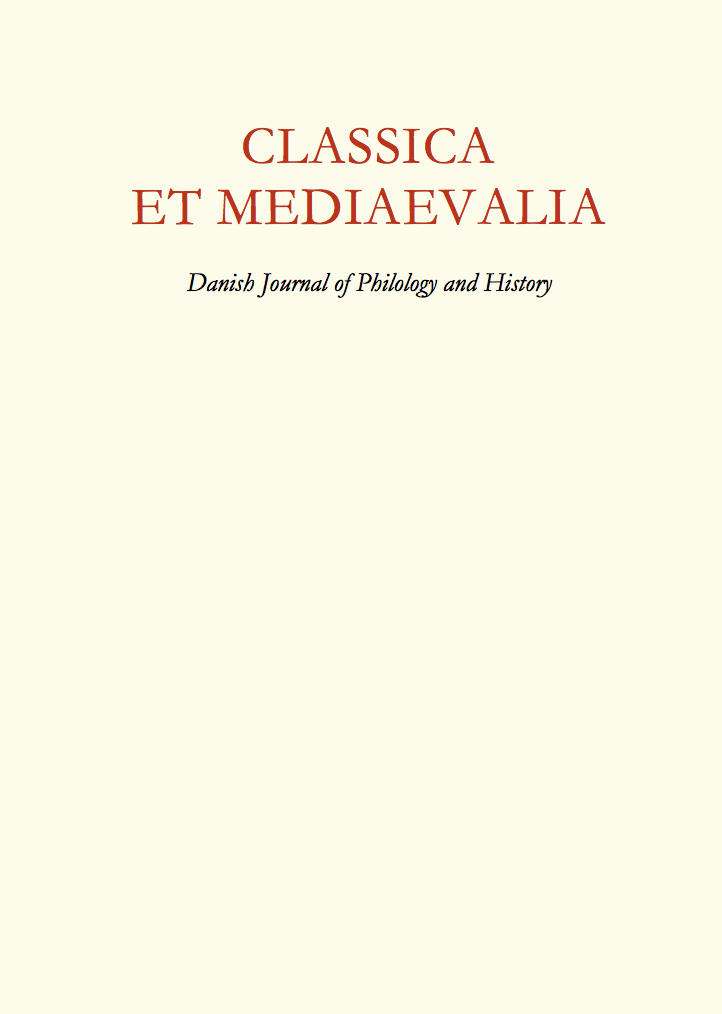Consuming Narratives: The Politics of Cannibalism on Mt. Lykaion
DOI:
https://doi.org/10.7146/classicaetmediaevalia.v67i0.111768Resumé
This article examines a Classical reference to werewolves, a passing analogy made by Plato in the Republic, in his description of the development of a tyrant. In gen- eral, scholars of myth/ritual have largely downplayed or taken for granted the specific Platonic context; while philosophers have tended to overlook both Lyka i an cannibalism, and the intricacies of political alliances in the early fourth century BC. This paper brings together three areas of investigation: philosophy, religion and political history, situating the myth/ritual complex of Lykaon/Mt. Lykaion within the framework of (1) Plato’s Republic, where this myth/ritual is introduced analogically, and (2) fourth-century Peloponnesian politics, to which, it is argued, the Platonic werewolf analogy may be alluding, either in general or specific terms.
Downloads
Publiceret
Citation/Eksport
Nummer
Sektion
Licens
Authors who publish with this journal agree to the following terms:
- Authors retain copyright and grant the journal right of first publication with the work simultaneously licensed under a Creative Commons Attribution License that allows others to share the work with an acknowledgement of the work's authorship and initial publication in this journal.
- Authors are able to enter into separate, additional contractual arrangements for the non-exclusive distribution of the journal's published version of the work (e.g., post it to an institutional repository or publish it in a book), with an acknowledgement of its initial publication in this journal.
- Authors are permitted and encouraged to post their work online (e.g., in institutional repositories or on their website) prior to and during the submission process, as it can lead to productive exchanges, as well as earlier and greater citation of published work (see The Effect of Open Access).





